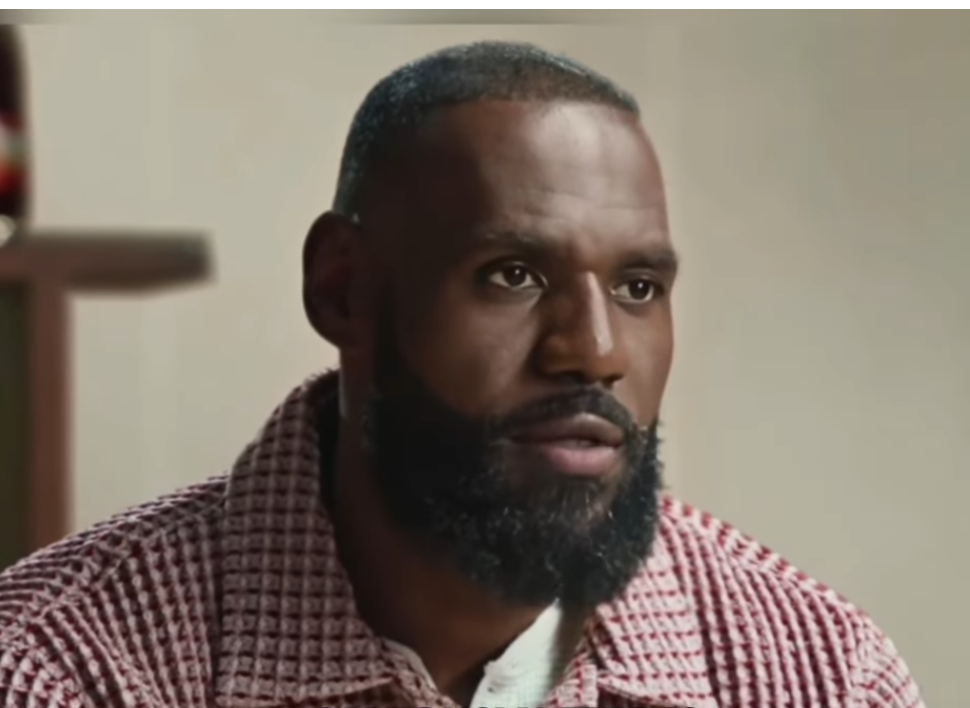Andrew Garcia, a fan of the Los Angeles Lakers, is taking his annoyance to court, bypassing Reddit threads and social media comments. Whether on purpose or not, the fan says LeBron James deceived him by sharing a mysterious video that appeared to be a retirement announcement but was actually a promo for Hennessy cognac. The move, which strikingly echoed LeBron’s notorious 2010 “The Decision” broadcast, sparked rumors and quick action from supporters like Garcia, who paid close to $900 to attend what he believed would be a historic farewell.

Garcia’s complaint isn’t about being betrayed emotionally. Instead, it’s the simple financial one, specifically $865.66. Citing “fraud, deception, and misrepresentation,” he is suing for that sum, stating that he only wants his money returned for two tickets that he feels he never would have bought without the false advertising.
LeBron James: Bio & Career Summary
| Attribute | Details |
|---|---|
| Full Name | LeBron Raymone James |
| Date of Birth | December 30, 1984 |
| Age | 40 |
| Birthplace | Akron, Ohio, United States |
| Occupation | Professional Basketball Player, Entrepreneur |
| Current Team | Los Angeles Lakers (NBA) |
| NBA Debut | October 29, 2003 (Cleveland Cavaliers) |
| Career Highlights | 4× NBA Champion, 4× MVP, All-Time Leading Scorer |
| Endorsements | Nike, Hennessy, PepsiCo, Beats by Dre, Blaze Pizza |
| Estimated Net Worth | $1 Billion+ |
| Notable Ventures | SpringHill Company, Uninterrupted, Lobos 1707, I Promise School |
| Reference Source |
The aforementioned video deftly hinted at “the decision of all decisions,” which is quite similar to what LeBron said when he moved from Cleveland to Miami in 2010. A frenzy was triggered by that resemblance. The cost of tickets for the Lakers’ last regular-season game soared in just a few hours. On secondary sites, some seats were resold at even bigger margins, while others saw their prices double. In an attempt to see the kind of moment that fans live for, Garcia, who is said to have been a lifelong Lakers fan, hurried to purchase tickets for LeBron’s game versus the Cavaliers on March 31, 2026.
He received a tastefully shot booze advertisement instead.
LeBron’s most recent commercial partnership with Hennessy was showcased in the advertising video, underscoring his continued marketability even in his forties. Some saw it as a wise business decision. Others thought it was a bait-and-switch, especially aficionados like Garcia.
Garcia has made it clear in interviews that he is not looking for notoriety, wealth, or emotional compensation. He is only suing for the money he spent. He said, “I’m not asking for any kind of emotional distress or anything like that.” “I think this is a really good case. I’m not attempting to get rich here.
He speaks in a very methodical tone. He is not criticizing LeBron’s legacy or casting doubt on the athlete’s authority to endorse goods. He is merely defining the boundary between apparent manipulation and lighthearted marketing. At least according to Garcia, it’s a very obvious case of expectation vs reality.
Despite its modest financial impact, this occurrence highlights a larger cultural trend: the blending of marketed storytelling with personal narrative. Celebrities have been using their platforms more and more over the last ten years to sell items in emotionally charged ways in addition to sharing updates about their lives. This dynamic has been significantly heightened by social media, which enables celebrities to directly access the lives of their fans—often in real time and with no background information.
LeBron has long balanced being an athlete and an entrepreneur, building a brand image as a cultural icon and a smart, family-oriented leader. Although he has various partnerships, they are nearly always connected to stories of personal development, creativity, or empowerment. The Hennessy announcement was especially startling because of this. The tease wasn’t just any post; it was a well-planned, emotionally charged piece that was meant to resemble a pivotal point in the author’s career.
Supporters are entitled to a sense of involvement. LeBron is a symbol of a generation, not just a basketball player. His retirement will be the end of an era for many. As a result, his use of the symbolic language of finality to start an advertising campaign came off as clumsy—like a magician removing a receipt rather than a rabbit.
It’s interesting to note that this scenario is similar to other celebrity controversies where the distinction between personal and promotional information was obfuscated. After advocating cryptocurrencies without making the required disclosures, Kim Kardashian came under fire. In a similar vein, supporters who felt duped by Logan Paul’s branded optimism reacted negatively to his highly publicized NFT ventures. The problem in both situations as well was not simply what was sold, but also how it was presented.
Although Garcia’s claim is unlikely to be successful based on conventional fraud legislation, legal experts believe it could compel a more extensive discussion about influencer accountability. especially when the influencer is among the world’s most prominent athletes.
LeBron—possibly unintentionally—drew attention to the remarkably comparable mechanisms between advertising and trust by utilizing emotional resonance. Fans experience more than simply disappointment when they believe the line has been crossed. They feel taken advantage of.
That feeling of betrayal is not insignificant. Purchasing tickets is an investment in creating memories for loyal fans, not merely a transaction. Garcia’s annoyance reflects a more widespread, frequently unsaid conflict between fans and celebrity branding: the presumption that emotional capital won’t be used for profit.
LeBron has already come under fire for his brand-related narratives. A teaser for huge life news in 2021 turned revealed to be a marketing gimmick for the “Space Jam” sequel. At the time, fans laughed it off. However, these incidents have started to accumulate—much like turnovers in a postseason game—in a media environment where every action is marketed. Even LeBron, who excels as a businessman and an athlete, is susceptible to brand weariness.
LeBron’s billion-dollar empire is unlikely to be harmed by the action, which was filed in small claims court. However, the message it conveys—fans desire transparency—may strike a deeper chord. Additionally, there are real-world financial and emotional repercussions when celebrities of LeBron’s caliber subvert popular expectations, even in a lighthearted manner.
LeBron hasn’t said anything about it in public yet. Maybe for good reason. His quietness creates a sense of distance as well as mystique. This episode is one of the few instances a man who is known for controlling the narrative has given it up, even for a short while, to a disgruntled fan with a simple receipt and a lawsuit.
